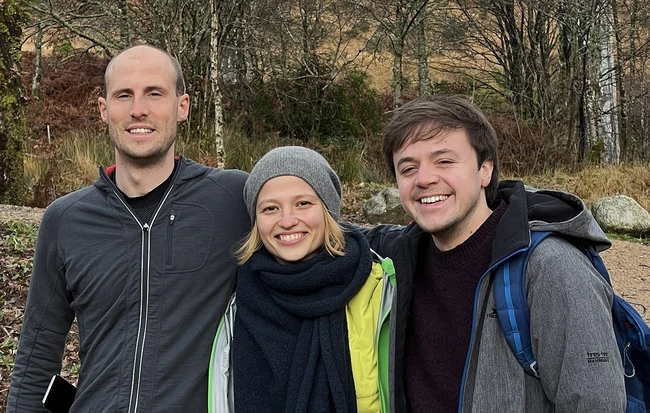Science is in a reproducibility crisis. In preclinical research, it’s estimated that over 50% of efforts to reproduce experiments fail, costing the industry over $50bn each year. Solving this problem, techbio startup Briefly Bio has launched with software that makes lab work more reproducible by helping scientists capture and share their work clearly and consistently.
With this launch, Briefly Bio has secured a $1.2m pre-seed funding round. It was led by Compound VC, with participation from NP Hard, Tiny VC and angel investors across tech and biotech.
Biological experiments have become increasingly complex. With this growing complexity, details that are critical to our shared understanding are often undocumented and lost. This makes scientific collaboration inefficient: lab scientists struggle to reproduce and build on top of each other’s experiments; data scientists do not have the necessary context to analyse the data produced in their labs; and automation teams lack all details to build robotic labs.
Briefly Bio is tackling this, creating a shared language for experiments that is consistent across scientists, and clear for any collaborator to understand. Their software uses AI to convert existing experiment descriptions into this consistent format, while automatically filling in gaps and spotting errors. This helps capture the value of every experiment that is run, and enables scientists to learn from each other’s work.
Briefly was founded by Dr Katya Putintseva, Harry Rickerby and Staffan Piledahl. They have varied backgrounds, through academia, tech, biotech and robotics. Before founding the company, the three worked together at drug discovery startup LabGenius, where they helped build its ML-driven antibody discovery platform.
Harry Rickerby, CEO and co-founder at Briefly Bio, commented: “Scientific methods are a bit like software code, they are a set of instructions that define how an experiment should be run. The majority of this ‘code’ is incomplete, since writing up each experiment completely takes a huge amount of effort. Now, with LLMs, there’s a way to make these methods consistent without imposing on a scientists’ workflow. As Github helped software engineers collaborate and build on each other’s code, we think Briefly can help scientists and engineers do the same with their experiments.”
With AI and high throughput experimentation, there is an opportunity for huge improvements in the efficiency of scientific discovery. Hundreds of billions of dollars are being invested through startups and big pharma to take advantage. To realise this potential, science needs more consistency and transparency in how these datasets are generated, since the value of any model is a product of the data it has been trained on. Briefly Bio is building this necessary layer of infrastructure to accelerate scientific discovery in biology.
“This is a revolution in documenting lab experiments. It is the future of foolproof knowledge-sharing between scientists” said Dr Gena Nikitin, Founder of Miphic. While Dr Maria Anastasina, Wet Lab Head at the Evolutionary and Synthetic Biology Unit, OIST, added: “Briefly has become a core part of our lab’s knowledge base and a great help to me in training researchers and lab management”. And Suparna Kumar, PhD student at Weill Cornell commented: “Briefly Bio has become an indispensable part of my lab routine because it helps me save so much time”.
Rob Harkness, CTO of Biosero, added: “We’re very excited by what Breifly.Bio can offer with their software tools. Inconsistent and incomplete data can compromise research, making it difficult to reproduce experiments and undermining trust in scientific results. Digitalising and automating laboratory operations can address this, but this effort faces challenges of inefficiency and high error rates, primarily due to the diverse formats in which workflows are presented. Briefly.bio addresses this by converting scientific protocols written in natural language into a common and consistent structured format. This facilitates much faster design and implementation of automated systems, ensuring all critical information is captured and utilized effectively. The result is a significant boost in workflow integration, efficiency, and data quality, all of which are crucial for generating reliable experimental results. This leads to more comprehensive and innovative solutions in lab automation that can only help accelerate scientific research.”
Shelby Newsad, Investor at Compound, commented: “The crux of successful science lies in consistent and executable methods. Whereas most bio software companies focus on data and its analysis, Briefly goes upstream to the core problem space of reproducibility via protocols. For the first time in science history, this incentivizes scientists to share more of their previously tacit knowledge. The fact that Briefly-made methods can be built and collaborated upon creates unique potential for network effects from their software.”
Briefly Bio is creating a future where scientists can stop reinventing the wheel – spending time and resources on experiments that they can’t reproduce. This will enable scientists to produce datasets that will quickly expand our understanding of biology.




